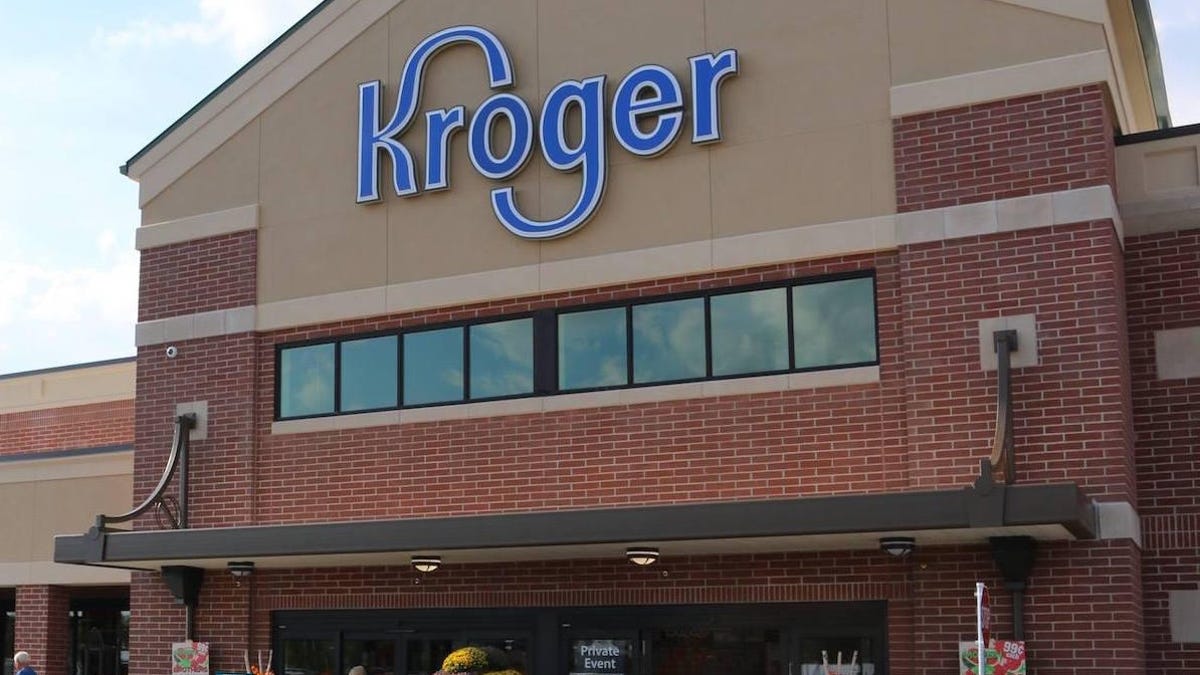Kroger, Albertsons CEOs Defend $25B Merger Before Senate
Here's everything you need to know and what the largest-ever grocery merger might mean for prices.

The CEOs of Kroger and Albertsons face a Senate committee on Tuesday to defend the nearly $25 billion merger.
On Tuesday, CEOs of Albertsons and Kroger, two of the largest grocery chains in the US, will go before the Senate to answer questions related to antitrust and defend their nearly $25 billion dollar merger. The deal, announced on Oct. 14, immediately sparked pushback from lawmakers and union groups for its potential to violate antitrust laws. The combining of these two supermarket giants would create a company on par with Walmart in terms of size and reach.
Kroger CEO Rodney McMullen and Albertsons CEO Vivek Sankaran will face the Senate Judiciary Committee's antitrust panel led by Sens. Amy Klobuchar, a Democrat from Minnesota, and Mike Lee, a Republican from Utah. While the committee itself can't tank the deal, it can shed light on what the massive merger might mean for the sector, consumers and employees of the two chains. The committee is expected to grill the leaders of both companies on issues including the competitive impact of the transaction, price gouging and employee layoffs.
Ultimately, it will be the Federal Trade Commission that decides the fate of the megadeal.
Why the merger is happening
The companies combined would operate nearly 5,000 stores across the US, giving them an economy of scale to compete with the likes of Amazon and Walmart. Walmart is the largest grocery retailer in the US, with more than 5,300 stores, and the merger would put the combined company in a viable spot to compete with, and possibly even overtake, Walmart's place as national grocery king.
Cincinnati-based Kroger operates grocery chains including its namesake store, Ralphs and Harris Teeter. Albertsons, based in Idaho, has a grocery portfolio that includes Tom Thumb, Safeway, Acme and Jewel-Osco. The companies currently employ more than 700,000 people all together.
McMullen, who would serve as CEO of the company after the merger, has said of the deal, "we are bringing together two purpose-driven organizations to deliver superior value to customers, associates, communities and shareholders."
As part of the deal, the grocery chains said they would sell off up to 375 stores to "create a new, agile competitor" to help win over regulators.
What a merger might mean for grocery store prices
While the deal still hinges on FTC approval and won't be finalized until early 2024, experts are already speculating about what effects the joining of the two largest supermarket chains might have on consumer prices.
Kroger has stated that it plans to reinvest approximately $500 million in cost savings to reduce prices for consumers. The companies also plan to invest $1.3 billion to "enhance" the Albertsons customer experience. McMullen recently told the Cincinnati Inquirer: "We'll be able to continue to invest in our associates on pay and invest in the customers on pricing."
But not all lawmakers and industry experts are convinced. At a time when inflation and grocery prices are a major concern for the public, the merger has the potential to make things worse. A 2008 study, for instance, scrutinized five mergers and found that consumer prices rose between 3% and 7% in four out of the five cases.
On Nov. 21, four members of the House of Representatives -- Democrats Jerry Nadler of New York, Pramila Jayapal of Washington, David Cicilline of Rhode Island and Adam Smith of Washington -- issued a letter to FTC Chair Lisa Khan speaking out against the deal. "This acquisition threatens to create a competition-stifling concentration in markets across the country, hurting consumers, workers and small businesses. Kroger's proposed acquisition of Albertsons presents several anticompetitive concerns," they wrote.
Progressive senators including Bernie Sanders, an independent from Vermont, and Elizabeth Warren, a Democrat from Massachusetts, previously called on the FTC to reject the merger outright. On Oct. 19 Warren tweeted: "Big grocery chains like Kroger and Albertsons are already gouging families with inflated prices. More mergers and less competition would mean even higher prices -- and layoffs for employees."

